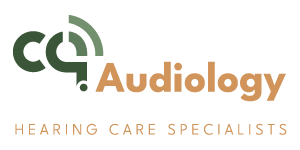There are several effective treatments for tinnitus. Medications like antidepressants and anti-anxiety drugs can sometimes provide relief. Sound therapy and masking devices can help mask the ringing sound. Tinnitus retraining therapy combines sound therapy and counseling to help you habituate to the perception of tinnitus. Cognitive and behavioral therapies can change how you think and feel about the condition. Lifestyle changes like reducing stress and avoiding loud noises can also help manage tinnitus. To learn more about these options and discover a holistic approach to treating your tinnitus, continue reading.
Medications for Tinnitus
Medications can help manage tinnitus, the persistent ringing or buzzing sound in your ears. Antidepressants like tricyclic antidepressants and selective serotonin reuptake inhibitors can sometimes alleviate tinnitus symptoms. Anti-anxiety medications may also provide relief. Certain anticonvulsants, lidocaine, and melatonin have shown promise in some studies. However, their effectiveness varies, and they may not work for everyone. It's crucial to work closely with your healthcare provider to find the right medication and dosage for your needs. While medications can help manage tinnitus, they don't cure the underlying condition. A comprehensive treatment plan that includes sound therapy, counseling, and lifestyle changes may provide the best long-term relief.
Sound Therapy and Masking Devices
While medications can help manage tinnitus, they don't offer a complete solution. Instead, sound therapy and masking devices can provide relief. These devices emit low-level, unobtrusive sounds that mask the ringing in your ears, making it less noticeable. Some produce white noise, while others use nature sounds like ocean waves or rainfall. Masking devices are available as tabletop units, wearable devices, or smartphone apps. They can be used during the day or at night to help you relax and sleep better. By reducing the perceived volume of tinnitus, these therapies can improve your quality of life. Discuss sound therapy options with your audiologist to find the right fit for your needs and lifestyle.
Tinnitus Retraining Therapy (TRT)
Tinnitus Retraining Therapy (TRT) is a comprehensive approach that can effectively manage your tinnitus. It combines sound therapy and counseling to help you habituate to the perception of tinnitus. The goal is to change your negative emotional response to the sound, allowing you to tune it out subconsciously. Through directive counseling, you'll learn to understand the neurophysiological mechanisms behind tinnitus and develop coping strategies. Sound therapy uses low-level, neutral sounds to reduce the contrast between tinnitus and silence, making it less noticeable. Over time, TRT can help your brain stop perceiving tinnitus as a threat, reducing its impact on your daily life.
Cognitive and Behavioral Therapies
When medications or sound therapies aren't enough, cognitive and behavioral therapies can be extremely effective for managing tinnitus. These approaches help you change your thoughts, emotions, and behaviors related to the condition. You'll learn coping techniques to reduce the distress caused by tinnitus, like relaxation exercises and attention diversion. Cognitive-behavioral therapy (CBT) is particularly helpful, as it targets the negative thought patterns that perpetuate the problem. With practice, you'll gain greater control over your reactions to the sound, improving your quality of life. While it takes time and commitment, cognitive and behavioral therapies offer a long-term solution for managing tinnitus.
Lifestyle and Home Remedies
In addition to cognitive and behavioral therapies, there are various lifestyle and home remedies you can try to manage your tinnitus. Reducing stress and anxiety through relaxation techniques like meditation, yoga, or deep breathing can help alleviate tinnitus symptoms. Avoiding loud noises and using sound machines or white noise devices can also provide relief. Limiting your intake of caffeine, alcohol, and tobacco, which can exacerbate tinnitus, is recommended. Engaging in regular exercise and maintaining a healthy diet rich in antioxidants may help reduce tinnitus-related distress. While these remedies may not cure tinnitus, they can help you better cope with the condition and improve your overall well-being.
Alternative and Emerging Treatments
While lifestyle and home remedies can provide some relief, you may also want to explore alternative and emerging treatments for your tinnitus. Acupuncture, for instance, may help reduce tinnitus symptoms by improving blood flow and reducing inflammation. Transcranial magnetic stimulation, a non-invasive procedure, has shown promise in decreasing tinnitus severity. Certain herbal supplements like Ginkgo biloba and melatonin may also be worth trying, though their effectiveness is still being studied. Additionally, cognitive-behavioral therapy can help you manage the psychological impact of tinnitus. Remember, everyone's experience with tinnitus is unique, so be patient as you explore different treatment options.
Managing Tinnitus Holistically
How can you manage your tinnitus more holistically? Alongside medical treatments, a comprehensive approach can help alleviate your symptoms. Try relaxation techniques like meditation, yoga, or deep breathing to reduce stress, a common tinnitus trigger. Manage your diet by avoiding caffeine, alcohol, and salty foods, which can exacerbate tinnitus. Exercise regularly to improve blood flow and overall well-being. Explore sound therapy options, such as using white noise machines or listening to soothing natural sounds. Additionally, consider joining a support group to connect with others experiencing similar challenges. Incorporating these holistic strategies into your daily routine can empower you to take a more active role in managing your tinnitus.
DISCLAIMER: The content on our site is intended for educational purposes only and should not be interpreted as an endorsement or recommendation of any treatments or products without a comprehensive hearing assessment. Users should seek professional advice and fully understand any potential side effects or risks before starting any treatment. Products mentioned on our site are not available for purchase by the public without prior consultation with a hearing health expert.
